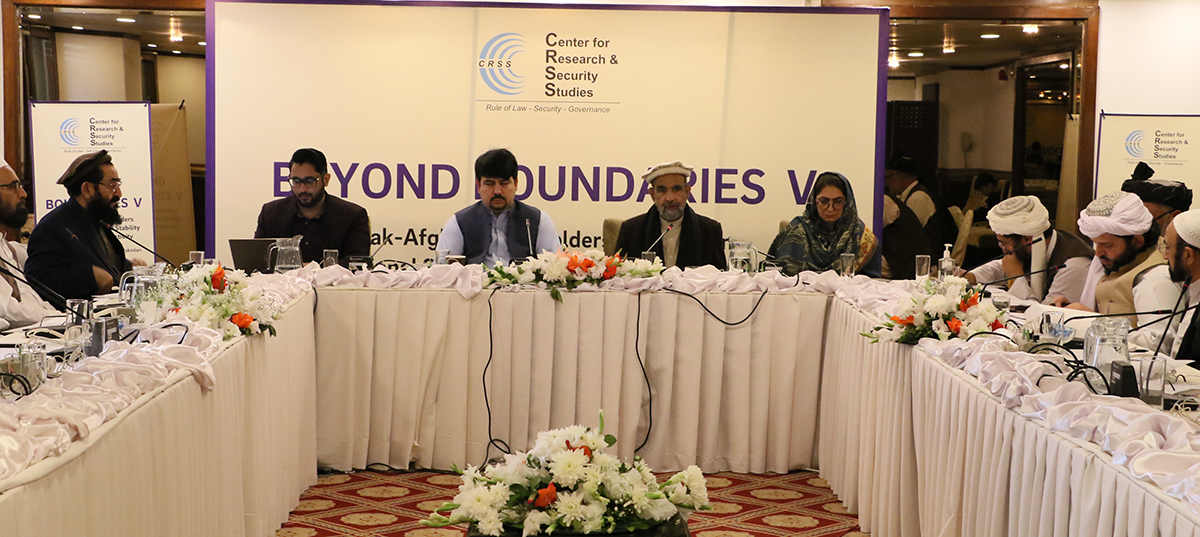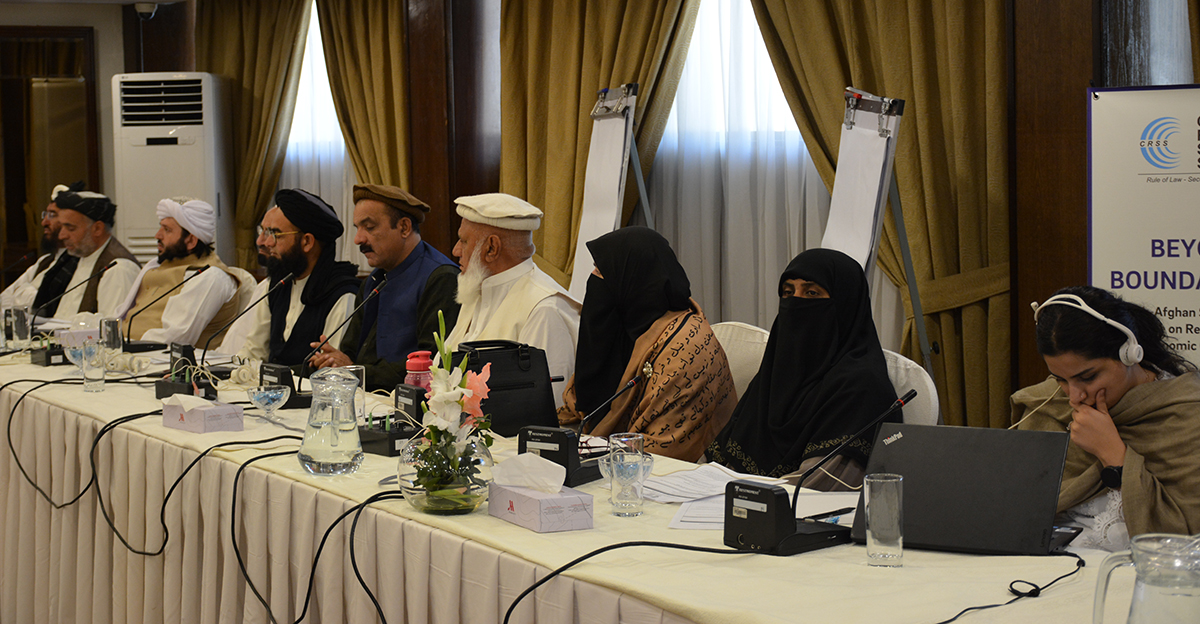Context
Comprising eminent religious and tribal leaders, academicians, and trade and media personnel from Pakistan and Afghanistan, the forum was convened to discuss and recommend solutions to the impediments to Afghan girls’ education and women’s right to work, regional and bilateral peace and security, and economic connectivity.
Critical Analysis
Since the Taliban takeover of Afghanistan, women have lost livelihood opportunities which further exacerbated the country’s economic crisis. Girls’ school closure, in the longer run, would obviate progress in socioeconomic, political, governance, and health sectors. In the light of prevailing circumstances that are, with each passing day, pushing the Afghan society toward regression, stakeholders on both sides of the border agree that the demand for reopening girls’ schools in Afghanistan is undisputed as only an educated lot of women and men can lead and build the future of Afghanistan.

Sense of Meeting
As much as the Taliban consider economic and political stability their foremost responsibility, they cannot overlook the graver and more virulent landscape occurring as a result of the school closure. The consensus on this was elicited by all the participatory actors – religious and tribal leaders, journalists, academicians, and businesspersons. The forum also opined that continuous engagement with the religious and tribal leaders is imperative to keep the voices alive and better advocate for the normalization of Afghan girls’ education. The participants also believe that the Taliban have not denied/ are not against girls’ right to education. However, they must create an enabling environment for girls and women so they can attain education and participate in the economic workforce and nation rebuilding. The forum strongly recommended reaching out to and consulting the Qandahar faction of the Taliban (a key factor in the decision-making) to regulate discourse and come up with prudent solutions to the issue. In this regard, a high-level Pakistani delegation must visit Kabul at the earliest to engage with the prominent stakeholders to discuss these recommendations with them. The Afghan side also opined that Pakistani stakeholder (academicians, religious scholars, educationists, policy experts, etc.) should offer their assistance to the de facto authorities vis-à-vis curriculum reviewing and revamping (if required) per the Islamic guidelines and modern scientific education so the country can compete with the rest of the world. The interlocutors also urged for resolving rampant conflict at the borders as it leads to closures and hinders economic connectivity. Non-renewal of APTTA and the absence of uniform trade policy have caused, in the longer run, disruption in bilateral trade and transit, and hence the agreement must be revised and mainstreamed to boost economic and trade potential between the two countries. Furthermore, a unanimous resolution that resonated was to advocate both governments to introspect their bilateral trade policy and introduce a barter trade mechanism under the current political climate in Afghanistan.


Recommendations:
1) Human Rights and Girls’ Education, and Socioeconomic Welfare
- Religious and tribal leaders, academicians, educationists, and policy experts from Pakistan and Afghanistan should meet the key Taliban officials to discuss the major impediments to girls’ education, and recommend solutions to address them, including those on curriculum, if needed. The key Taliban officials must include those from the Qandahar group as it is considered the most integral decision-maker and influencer. In this regard, a high-level delegation under the leadership of the Council of Islamic Ideology (CII) must visit Kabul soon.
- International community and entities such as UNICEF should continue their assistance vis-àvis paying the salaries of the Afghan teachers.
- Religious education networks such as Wafaq ul Madaris should extend their support, if needed, to the educational departments under IEA and collaborate on curricular policies per the Islamic guidelines and needs of the contemporary era.
- The IEA should provide an enabling environment for female members of society so they can attain education. This includes allocating separate classrooms/institutions for them and ensuring their safety and security.
2) Regional Economies, and Bilateral Trade and Transit
- Governments of both countries should prioritize eliminating bureaucratic hurdles and malpractices on part of certain border personnel that impedes trade and transit and cause bad blood between both countries.
- Both sides should devise relaxed taxation policies.
- Consultations should be held with the World Trade Organization (WTO) to revamp, update, and mainstream Afghanistan – Pakistan Transit Trade Agreement (APTTA) so both sides can have a uniform trade policy and robust economic connectivity.
- Discussions on agreements and implementation of mega projects such as the Turkmenistan – Afghanistan, Pakistan, and India (TAPI) pipeline must resume, keeping aside the political differences.
3) Governance, Rule of Law, and Peace and Security
- The forum must continue advocacy to promote regional peace and prosperity, as well as urge the de facto authorities to implement the Doha Agreement in letter and spirit to address the current wave of terrorism and insecurity in Afghanistan and the region
- Since peace is dependent upon education and collective approaches against extremism and radical ideologies., the IEA must normalize education for all individuals and groups to avert future waves of belligerence and radicalism.
- Pakistan and the international community should extend their assistance to the de facto authorities in improving and expediting its counter-terrorism efforts
- Border personnel on both sides should be sensitized via capacity-building training to tackle mass influx, and custom requests and ensure cross-border harmony with a people-centric approach.
- The IEA should formulate a transparent and explicit, zero-tolerance policy against terrorism.
4) Miscellaneous
- International community should increase its involvement and assistance to Pakistan vis-à-vis refugee influx to deal with their housing, education, and other social needs as the host country lacks the capacity – given the ongoing, grave economic crisis and population bulk.
